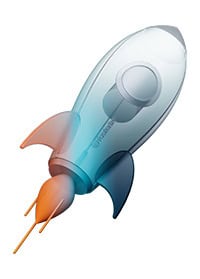Choosing the right platform and tools to launch an e-commerce business is a must for any entrepreneur or brand wishing to showcase their products online. Finding a secure solution that takes into account user experience, Search Engine Optimization (SEO) and ease of use and implementation is crucial for online merchants.
Magento 2 is an open-sourcee-commerce platform used by over 250,000 online businesses worldwide, which meets all these requirements. This open source content management system (CMS), acquired by Adobe Inc. in 2018, offers a range of features and templates for businesses looking to launch online. The functionalities offered by this content management system make it possible to carry out an omnichannel marketing and sales strategy. To give you a clearer idea, here are a few examples of companies that have opted to integrate Magento to create their e-commerce store and product and order manager.
Magento for fashion: the case of Marie Claire
Many fashion brands are exploiting the potential of Magento to develop their online presence. Among the ready-to-wear specialists using Magento are :
- Marie Claire (Quebec clothing brand) ;
- Zadig et Voltaire (French ready-to-wear brand);
- Nike (American leader in sportswear) ;
- Pepe Jeans (British jeans brand).
In 2015, Marie Claire had only physical stores and decided to extend its presence to online commerce. Thanks to the functionalities offered by the Magento content management system (CMS), the Montreal-based company creates its e-commerces and customizes the front-end of each platform it decides to invest in. In addition, it exploits various extensions and resources available on Magento Marketplace to enhance the user experience (UX). For example, it offers its customers the possibility of “buying a look” by recommending items of a given clothing style.
The results? Two years after the launch of its omnichannel retail strategy, Marie Claire has increased its conversions by 40% and delivers a weekly average of 1,500 items.
Magento 2 and the restaurant industry: the example of Burger King
American fast-food giant Burger King has opted for Magento to improve its B2B logistics processes. The fast-food chain’s aim was to better manage ordering, storage, invoicing and product distribution within its branches.
The project lasted six months and resulted in a tailor-made portal. Since its deployment, the system has enabled Burger King Germany to manage over 1,000 online orders at peak times for around 700 points of sale. Finally, this Magento-based solution also offers the possibility of managing over 5000 products with customized pricing.
Other brands specializing in food and catering products are also taking advantage of Magento and its ecosystem of extensions and partners (Magento Partners, Technology Partners and the Magento community). These include Beer Hawk, Auchan Russia, Monin, Nespresso, Coca-Cola…
The automotive sector benefits from Magento’s flexibility: focus on SEAT
The Magento e-commerce CMS has won over a number of manufacturers, including SEAT, Ford and Land Rover. In the case of Volkswagen subsidiary SEAT, the idea behind using Magento was to improve the experience of its target market: young people. As a mobile-browsing-oriented audience, it was necessary to prepare the ground for smooth, optimized smartphone browsing. The automotive brand launched a six-month project to :
- overhaul its online store, using the Magento library of interfaces and templates for a responsive design site adapted to mobile users;
- accelerate site pageloading times and improve ergonomics and mobile navigation;
- the integration of an inventory manager directly linked to the suppliers of SEAT-derived products, to reduce costs and eliminate the need for inventory management.
The result: a 10% reduction in maintenance costs, and simplified and accelerated deployment. The automaker’s web application can now transmit customer orders directly to the manufacturers of SEAT-derived products.
Beauty and cosmetics brands and Magento: Pierre Fabre as an example
Pierre Fabre, France’s second-largest pharmaceutical laboratory and the world’s second-largest dermo-cosmetics laboratory, has also opted to use Magento for the creation of its online store. The cosmetics brand chose to integrate the Magento Commerce cloud solution to upgrade the sites of its various brands in the USA: Avène, Glytone, Klorane, René Furterer within a centralized infrastructure. This project included:
- upgrading their site from Magento Commerce 1 to the cloud version Magento Commerce;
- improving the customer experience for both B2B and B2C customers;
- optimizing back-end order management workflow (using Magento Commerce 2 API).
Magento’s flexibility and the diversity of its extensions have also enabled Pierre Fabre toimprove the customer experience by adding optimized content (taking SEO into account) and allowing customers to add free and test samples to their shopping baskets. To build customer loyalty, the brand has opted for the inclusion of a variety of payment methods, such as Amazon Pay or PayPal, and the ability to automatically restock any product. Finally, the pharmaceutical company has opted for a notification system to inform consumers of promotions and discounts (free delivery, among others).
This investment has enabled Pierre Fabre to increase its conversion rate by 20%, win over 15% new customers and raise the average basket price by 10%. The e-commerce platform now includes a range of beauty and parapharmaceutical brands, including Sigma Beauty, Imperial Leather.
Magento and its constellation of partners and cloud solutions have established themselves in the e-commerce market over time. The open source platform is used by thousands of merchants, brands and retailers worldwide. It covers all aspects of an omnichannel sales strategy: mobile commerce, click-and-collect, shipping and delivery management, multilingualism, inventory and delivery management, product catalog management, and many other features.
Today, this CMS is used by companies of all sizes (multinationals, small and medium-sized enterprises). Its flexibility is exploited to produce customized websites and e-shops. This flexibility makes it possible to address all types of business (fast food, fashion, beauty, automotive, etc.) and to add customized tools thanks to Magento Partners.






















